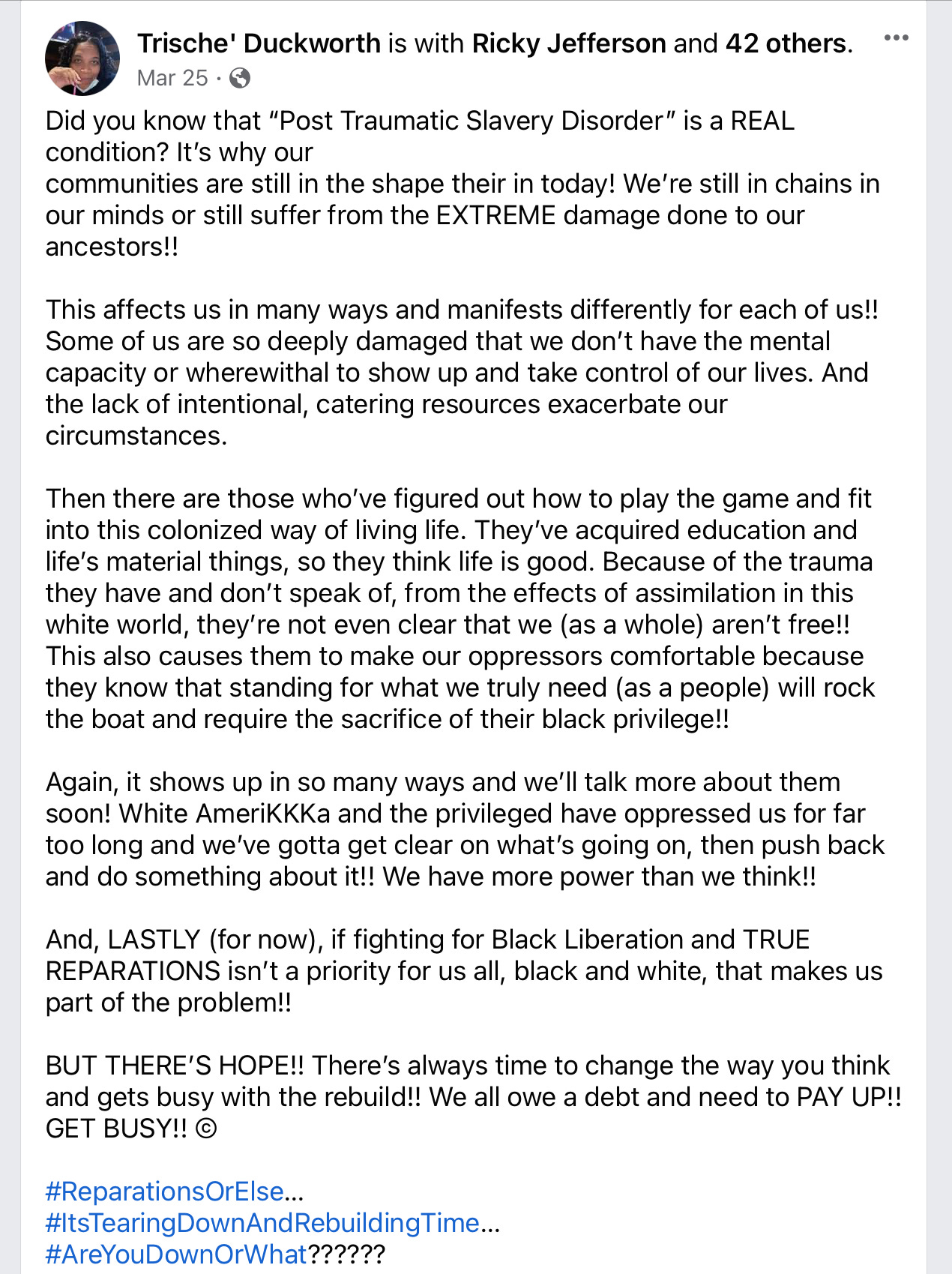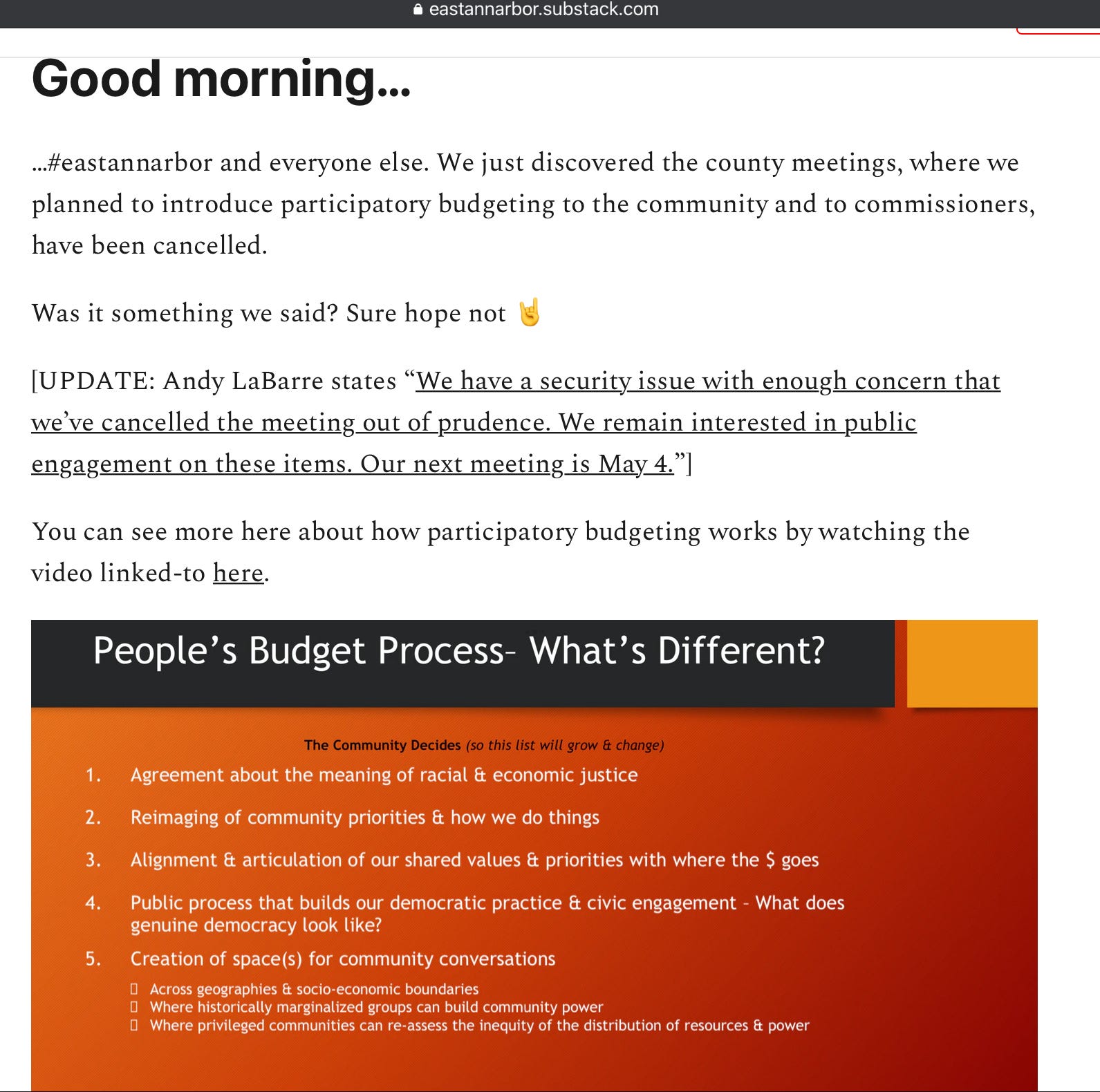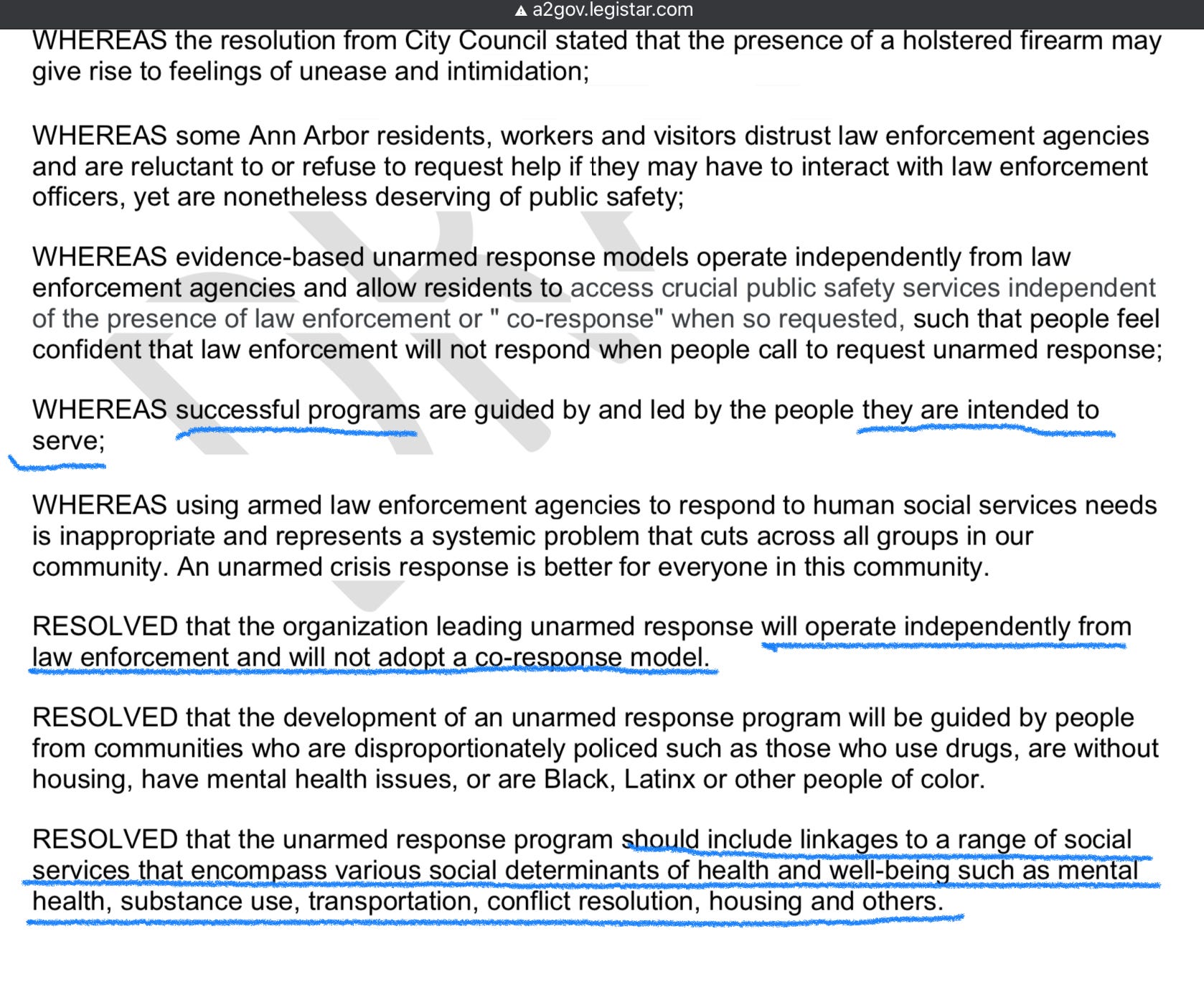AVOID THE NOISE: Outreach Notebook April 24, 2022
Municipal reparations on-the-agenda // A county-level participatory budget recap from last week // ICPOC>>unarmed crisis response and AAPD data
Welcome back everyone to #eastannarbor and our outreach notebook for Sunday April 24, 2022.
This week we recap briefly what happened with the county participatory budget project, check-in on the Independent Community Police Oversight Commission [ICPOC] and its efforts re: unarmed crisis response separate from AAPD/ to obtain AAPD pullover demographic data.
But first, let’s think about reparations.
Ann Arbor recently hit the press when it officially removed racial covenant language from a Hannah subdivision deed restriction. There are several of these still in existence across our county, our state. However, they became unenforceable after 1948 in a US Supreme Court decision, as noted by Michigan Advance reporter Laina G. Stebbins in her article linked to above.
It’s not a bad thing to remove these agreements from public deed registry. But it does little to correct the socioeconomic effects these deed restrictions had along with racially discriminatory federal and state housing subsidies.
We’ve heard some local electeds say that municipal governments do not have enough resources to implement a reparations program. However, a recent article from Michigan Law Review has a different viewpoint on municipal reparations.
“…municipalities provide the opportunity for community-centered reparations that other levels of government do not. A local approach allows for powerful, close-to-home storytelling, enabling greater understanding of connections between past and present; in turn, this animates the development of thoughtful, conducive reparations. Additionally, municipalities can solicit input more easily from community members and encourage their involvement. A municipality-based approach also allows for accessibility and proximity between government and beneficiaries once the policy is in place. Such a plan can more effectively empower the community and enable rebuilding relationships with perpetrators of the injustice.” »» From “Municipal Reparations: Considerations and Constitutionality,” By Brooke Simone. Michigan Law Review. Nov 2021.
Local activist Trische’ Duckworth has been out front on this issue of reparations for some time now. See the image below in which Trische’ shares the justification for reparations and the need for all of us to work together to achieve this particular avenue of justice.

One of the pathways we can use to begin work on a reparations wealth redistribution program is to continue our engagement with county commissioners and fellow residents with the participatory budget project we mentioned last week in the outreach notebook for April 17, 2022 as well as this update when we found out that the county commissioner meetings for 4/20/22 were cancelled:

So as you see from the image above, Commissioner LaBarre states that we will pick up on participatory budget considerations at the next Washtenaw County Commissioners meetings set for May 4, 2022. There are currently no agendas nor announcements posted for these meetings, however, when they do post it, the info will appear on this webpage.
Finally, today let’s think about Ann Arbor’s police oversight commission and its advocacy, along with several other community partners in the CROS coalition, for unarmed crisis response program that is administered separately from any police agency including the AAPD.
At the meeting taking place this coming week on April 26, 2022 at 6pm, ICPOC commissioners will discuss and vote on a resolution regarding the forthcoming unarmed crisis response unit for the city of Ann Arbor.

The fact that Ann Arbor is about to budget $3.5M for unarmed crisis response is a move toward safety for all in our community.
What do you think?
#eastannarbor will continue to provide updates on progress with this program.
ICPOC and other community members are still waiting for the AAPD and city to release traffic stop data in order to hold police accountable to the outcomes in terms of which demographics are pulled over and for which offenses. Here is a tweet from CROS leader, Ryan Henyard, re: what can be done to improve police departments’ equity outcomes with pullover data analysis.
A thread #A2Council and @A2Ipoc folks should check out; the demand for accessible, accurate traffic stop data can help oversight in their quest for accountability
— Ryan // #ReenvisionOurSafetyWashCo (@kurogane) 1:12 PM ∙ Apr 21, 2022
(Why it takes millions of more money to policing, years of advocacy to prove what's commonly known is another issue)
This request was submitted over one year ago and we are still waiting for the AAPD and city to come correct and share the data.
That’s all for the outreach notebook this week. Thanks for reading. We wouldn’t be here if you hadn’t been there. See you all next week!

